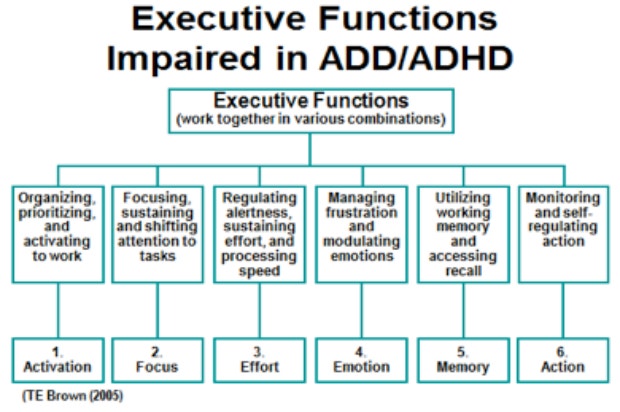3 Simple Tips For Parenting A Child With ADHD (When You Have ADHD, Too!)
Yes, it is possible!
 by Luis Quintero from Pexels
by Luis Quintero from Pexels It would be good if there was an instruction manual on how to parent, especially when you and your child have Attention Deficit Hyperactivity Disorder (ADHD). Maybe even a child-specific one that you bring home from the hospital, that gives you step-by-step instructions on what to do at each age.
But the irony is that there is a myth of parenthood — the myth that there is such a thing as a perfect parent.
The truth is that there is only a “good enough” parent. So cut yourself some slack if you're struggling to communicate with your child or understand their needs.
You're not only parenting a child, but you are also parenting a complex child, while you yourself are complex. But it doesn’t have to be so difficult, even if both of you have ADHD.
Understand what your ADHD looks like and how your brain works. When you were diagnosed, what was your treatment? Did it include education on executive function and what executive function impairments you struggle with?
Just in case, here is Thomas Brown’s Executive Function chart:

Photo by: Brown and Clinic
When you can acknowledge with self-compassion how and where ADHD impacts your life, you also begin to recognize how ADHD impacts your parenting. It becomes easier to see that your child isn’t trying to be “bad” or “difficult.” You can also understand your child is struggling organically.
She/he needs your support to learn how to manage their own impairments until they have mastered the skills they need to be self-sufficient, motivated adults.
So if you're struggling to find a healthy family balance, here are three suggestions on how to parent your child with ADHD when you have ADHD, too:
1. Take care of yourself first
You hear a lot about the importance of self-care. There is science behind what self-care can do for your physical, mental, and emotional well-being. So this is not selfish. You can’t come from a place of support when you are depleted.
Your self-care can include getting your own support. Whether it is joining parent groups, hiring an ADHD specific coach, or therapist, you also need support. Being a parent is hard. Being a parent living with ADHD and having a child or children who are complex too is really really hard!
When you start to feel frustrated, worried, or overwhelmed, listen to your body. I often tell my clients that your body will never lie to you, but your brain will.
So, if you are engaging your child, and you start to feel discomfort in your body – like your chest or stomach, then your body is telling you to back off or slow down.
You don’t have to solve everything right then and there. It is much easier to problem-solve when you have access to both sides of your brain. Give yourself permission to take a time out so you can breathe and get your emotions back to your baseline.
2. Acknowledge your own pain when you see your child struggle
It is hard as a parent to watch your kid struggle, painful even. It may even bring up painful memories from your past.
What are the first thoughts you have when you see your child struggling?
Does it remind you of a painful experience in your own childhood? If it does, that is OK and completely normal.
If you were diagnosed later on in life and have gone through the grieving state of anger because you pictured how your life could have been if you were diagnosed earlier. How did you feel demoralized due to not knowing? And how does it affect how you’re parenting your child?
Of course, you want to protect your child from your history of pain. But the reality is, they aren’t you, and life is painful, and pain is unavoidable.
But you're providing them more than you had access to. You are researching how to be the parent you want to be for your complex child.
You're searching for support like hiring an ADHD specific coach for your family, or applying for an IEP or 504 in school so your child can have the appropriate accommodations that put them on a level playing field as neurotypicals.
The point is, you are giving your child something that will keep them from having your experience.
However, you can’t protect them from everything. All you have to do is be there to support them, listen to them, and acknowledge that what they are experiencing is hard.
Validation is important. They want to be seen and heard just like you do.
They can get through anything when they have a safe place to share their emotional experiences. This will also teach them about emotional intelligence, which is a life skill that is important for them and will help them become resilient.
Your children also need to witness you as a parent and human being taking care of yourself. It will teach them to take care of themselves, too. Something else that will help them as adults.
3. Understand that your child is younger (maturity-wise) than their chronological age
Be aware that typically your child is 2-3 years younger maturity wise than their chronological age.
This includes the progression of their executive functioning. So if you have a 10-year old and they haven’t yet mastered a skill appropriate for a typical 10-year old, it is because your child, maturity-wise, is more like a 7 or 8-year-old.
That doesn’t mean they will approach every skill or task that way because it depends on which executive function the skill or task requires.
It also depends on how many steps it takes to complete the task. And transitions aren’t fluid which makes them difficult. But it is notbecause your child is lazy or notsmart enough. And they will master the task. But you have to break down each step into individual tasks and consider the transition time in between as another step.
Why are there so many meltdowns?
ADHD is neurological – it is brain-based and physiologically based. Your child’s central nervous system, as well as yours, doesn’t regulate as easily as a neurotypical. Depending on how old they are, they may not yet know what is happening to themselves in the moment or have yet to learn the skills to self manage.
This is also a place where your self-care comes in. Of course, you as the parent are supposed to be the calm one in any given situation (back to my fantasy land).
But if you don’t take care of yourself, physically and emotionally, it will be much harder to regulate yourself in the moment. And you will find that the only thing that will happen, is that your child will escalate, and there will be a breakdown in your relationship with them.
So what is the most important take away from this article?
The number one priority is your relationship with your child.
The more emotionally safe they feel with you, the easier it will be to work on and master the skills of life. This will help them become responsible and motivated adults.
So slow down the process. If you find yourself losing control or feeling overwhelmed, take a parent time out. It is hard to problem-solve when your emotions are high.
Give yourself permission to be imperfect. You don’t need to avoid making mistakes because that is all part of the process. Just own them and learn from them. By doing so, you are modeling for your child that mistakes are part of being human and an important part of growth.
For other resources on how to help your child, go to Impactadhd for classes and parent/coaching support.
Jacqueline Cohen is a licensed professional counselor and hypnotherapist who works with courageous women and mothers that want to live authentically. You can connect with her by email or to learn more about her practice and specialties, visit her website.

